From cooking in the family home as a child to Michelin-starred recognition, Chef Dani García’s life has been dedicated to the curation of exquisite dishes. Currently boasting a portfolio of restaurants that stretch from the Middle East to New York City, the chef has his sights trained on the west coast of America and beyond. Here, he talks about cooking, his beloved Andalusian cuisine and the key to staying relevant in the uber-competitive culinary industry.
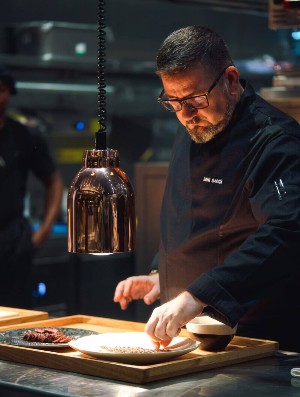
What are your first memories of cooking?
My first memory of cooking goes back to when I was very young. It was something I did with my family. While they didn’t cook professionally, they all had different jobs, but cooking at home was a big part of our routine. Every weekend, we would go to the market together, pick out fresh ingredients and then head home to prepare a meal. One thing I remember vividly is helping to harvest olives from our olive trees. We'd pick them, bring them home and then go through the whole process of curing them ourselves. It was such a hands-on, natural way of cooking and it really connected me to the food we ate. There's always been this strong cultural bond around cooking in our family - it's just part of who we are.
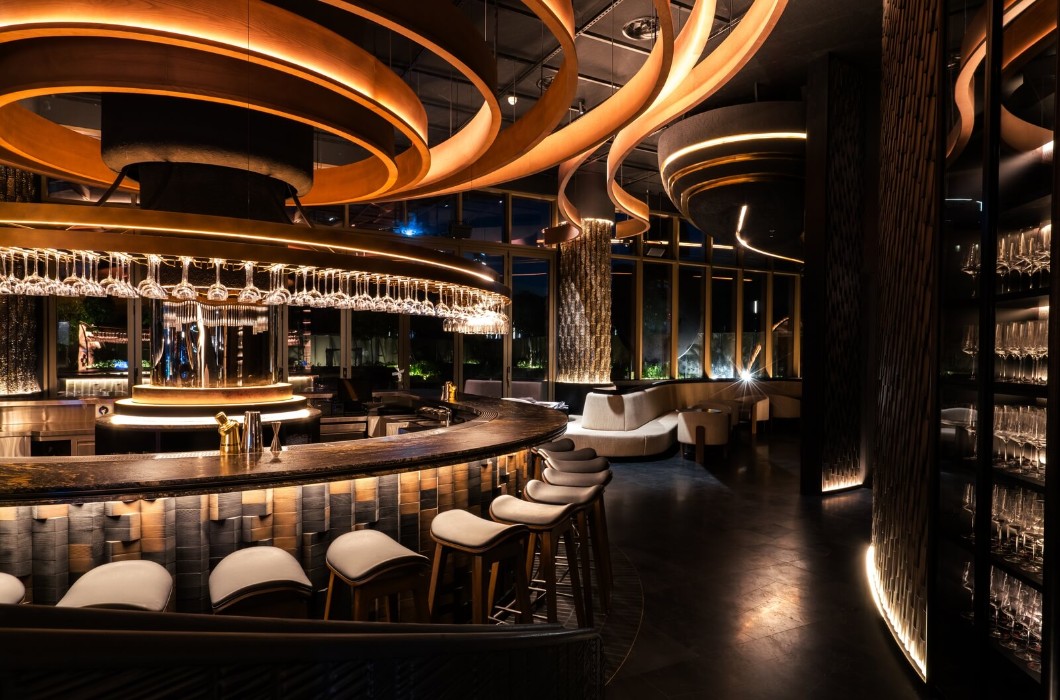
When did you know you were going to be a chef?
I’ve always been drawn to cooking, but it wasn’t necessarily something I planned for my future. It wasn’t until I was about 16 that I started thinking more seriously about my options. I realised I had two paths in front of me: either go to university or find a profession. By the time I was 17, I knew I didn’t want to continue with school, so I started exploring other options. Growing up in Marbella, where tourism plays such a big role, it made sense to me to look into something in hospitality. That’s when I realised that the hospitality and tourism industry was a perfect fit for me. So, I started focusing on that, and that’s how I ended up choosing this path.
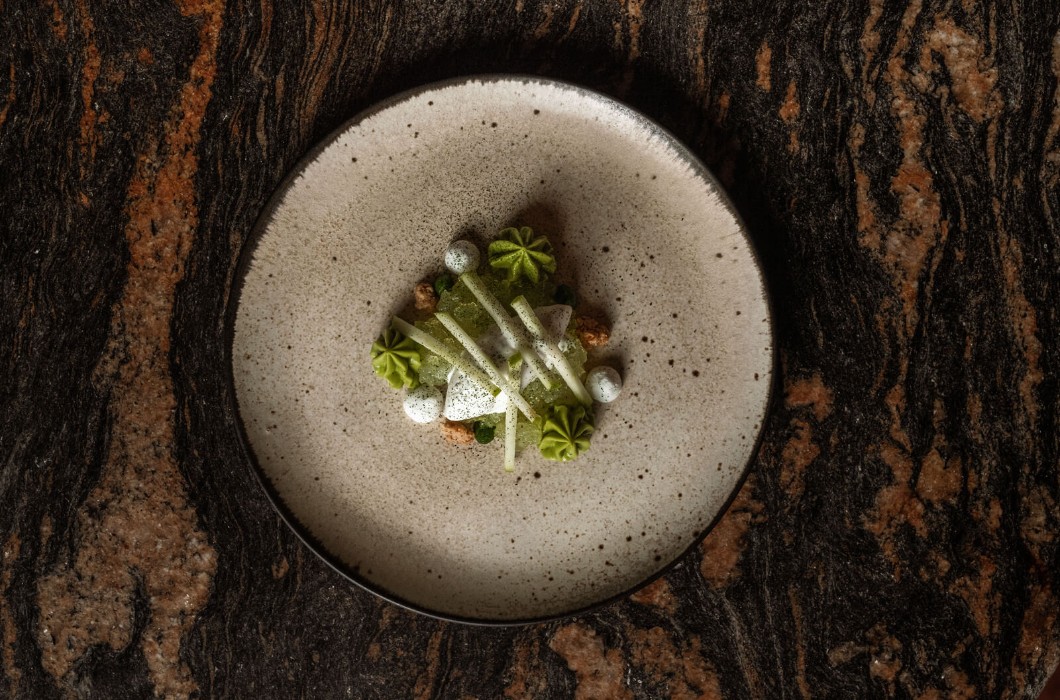
Tell us about how you got involved in the culinary industry.
I started at a small gastronomic restaurant in Ronda. After culinary school, I did my internship with Martín Berasategui in San Sebastián, and it wasn’t until later that I ended up at Tragabuches. I joined the team there as head chef, which, in hindsight, felt like a mix of luck and obligation. I wasn’t really ready for such a big responsibility at just 22-years-old, but I had to make it work. It was a huge challenge, but I took it on with everything I had. Looking back, it was a defining moment in my career. Taking on that level of responsibility at such a young age forced me to grow quickly. It really set me on the right path, and the lessons I learned there about leadership, accountability, and pushing through tough moments still stay with me today.
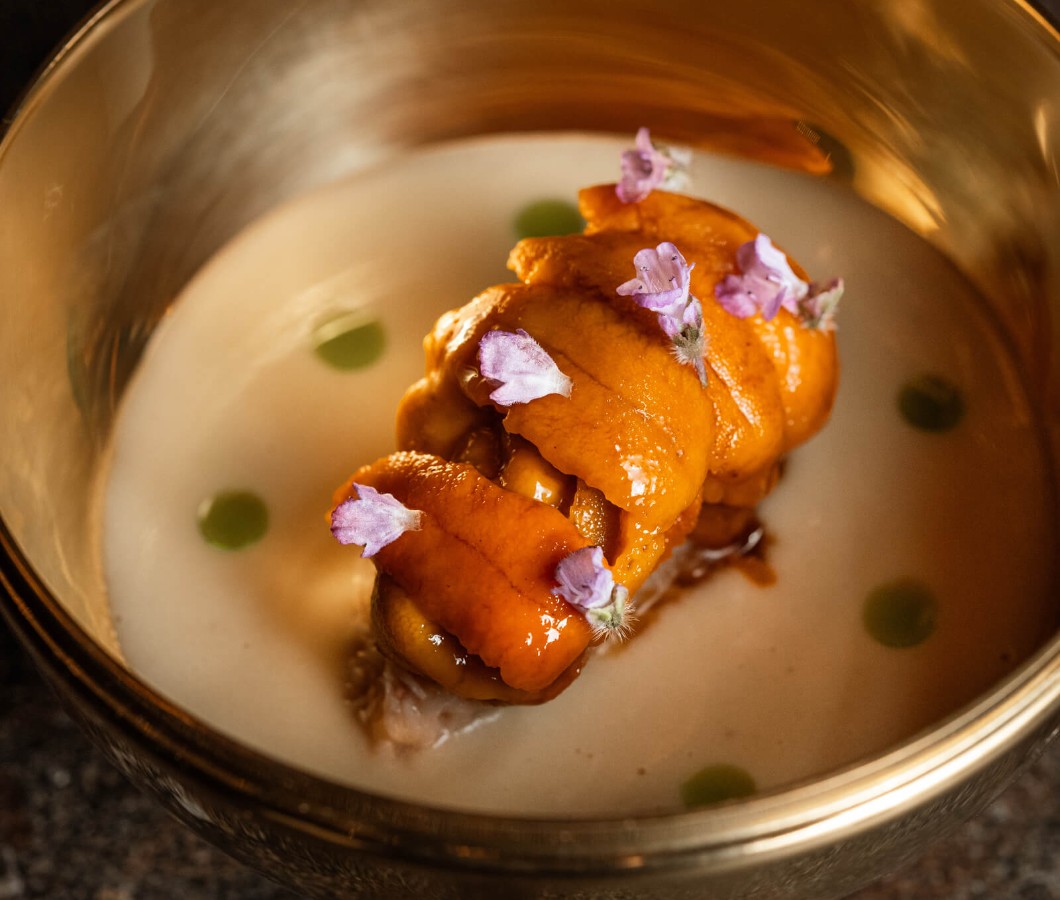
You’ve blended Andalusian recipes with international influences and flavours throughout your career. What is your creative process when developing new dishes?
When I first started in 1998, creativity was really driven by books. I would buy all the culinary books I could find, and I became obsessed with the idea of evolving traditional recipes that I’d learned from my family. At the time, it felt like a way to push boundaries while still respecting my roots. There’s no clear-cut path or rule for creativity. One dish doesn’t have just one way of being made, and a lot of the time, evolution happens out of necessity. When I’m developing a menu, you have to stick to certain guidelines like having a starter, a main, a dessert, balancing portions, etc. For example, a starter might be more vegetarian, and the main course would have more protein. But creativity goes beyond just these rules. Within those structures, there’s still so much room for creativity. It’s more complicated than people realise as you have to follow certain guidelines. But the real work comes in pushing the boundaries and making it all come together in a thoughtful, original way.
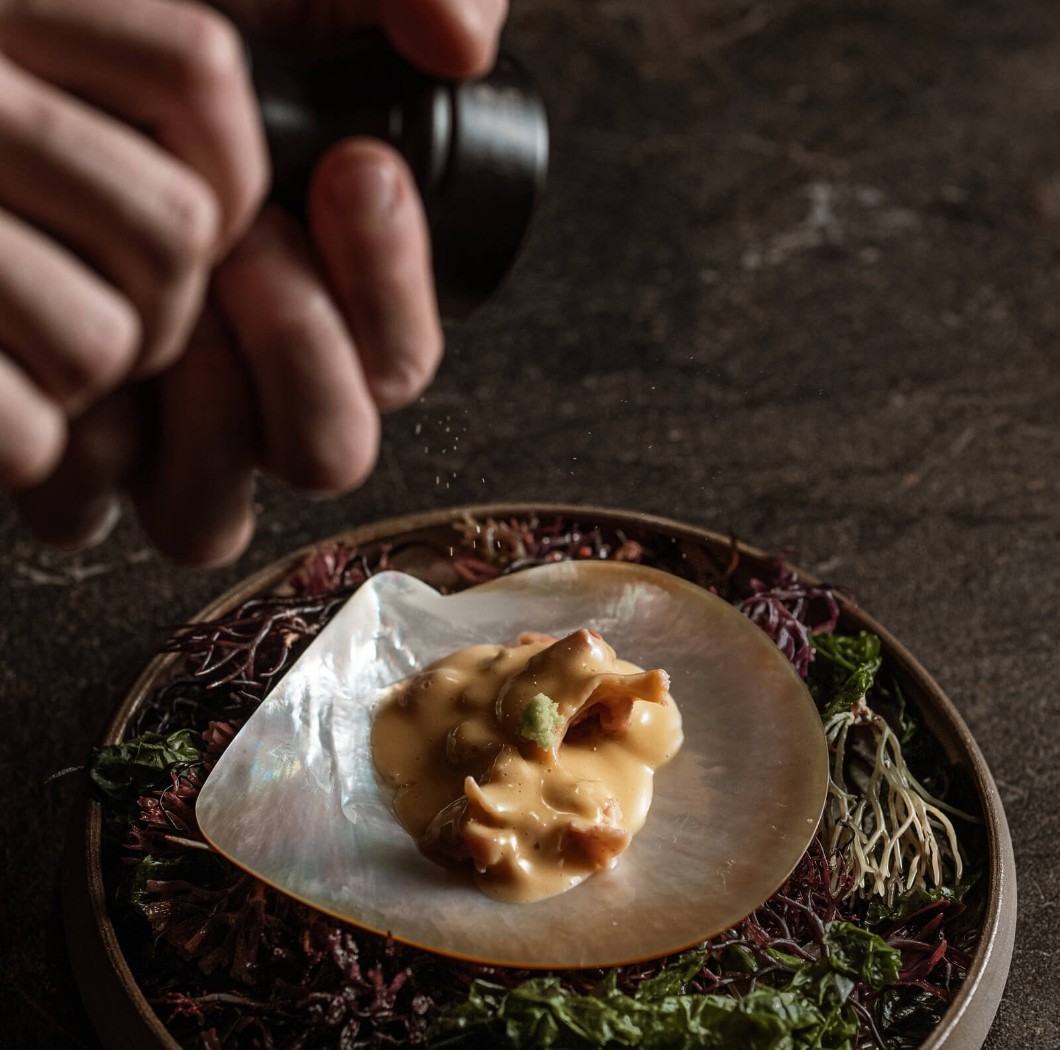
For those who are not familiar, tell us about Andalusian cuisine and what makes it so special?
Andalusian cuisine is really special for a number of reasons, but a big part of its uniqueness comes from the region itself. Located in the south of Spain, Andalusia is where the Atlantic Ocean and Mediterranean Sea meet, which creates a kind of magic in the ingredients. The combination of these two seas brings a rich variety of seafood and the climate. The hot summers and mild winters make it perfect for growing incredible produce. But it’s not just about the food - it’s the whole cultural context that makes Andalusia stand out. The traditions and culinary practices here have been passed down through generations, and there’s a deep respect for the flavours and ingredients that have shaped the region over time. All of this comes together to create a cuisine that’s both rich and diverse. And let’s not forget the people. In the south of Spain, the atmosphere is so warm, both literally and figuratively. People are friendly, open and have this natural sense of joy and hospitality that really adds to the experience of Andalusian food. It’s the perfect place where culture, tradition and gastronomy all work in harmony.
Your restaurants cover the spectrum from fine dining to informal dining. How have you managed to maintain excellence across the different dining formats?
Regarding Andulasian gastronomy, we are lucky enough that Andalusia is a huge region. From east to west, north to south, it is completely different so the interior of the region is different to how we cook in south. For example in Marbella, we cook in a fresh and Mediterranean way with a lot of fish and seafood, gazpacho, fresh vegetables a lot of tomato and almonds. it is a very special community. One hour away, towards the mountains, in Ronda there is more cold cuts, more stews like oxtail so the gastronomy is more heavy and it’s only 45 mins away from Marbella. Marbella and Ronda represent Andalusia - two cities separated one hour, yet represent a huge difference.
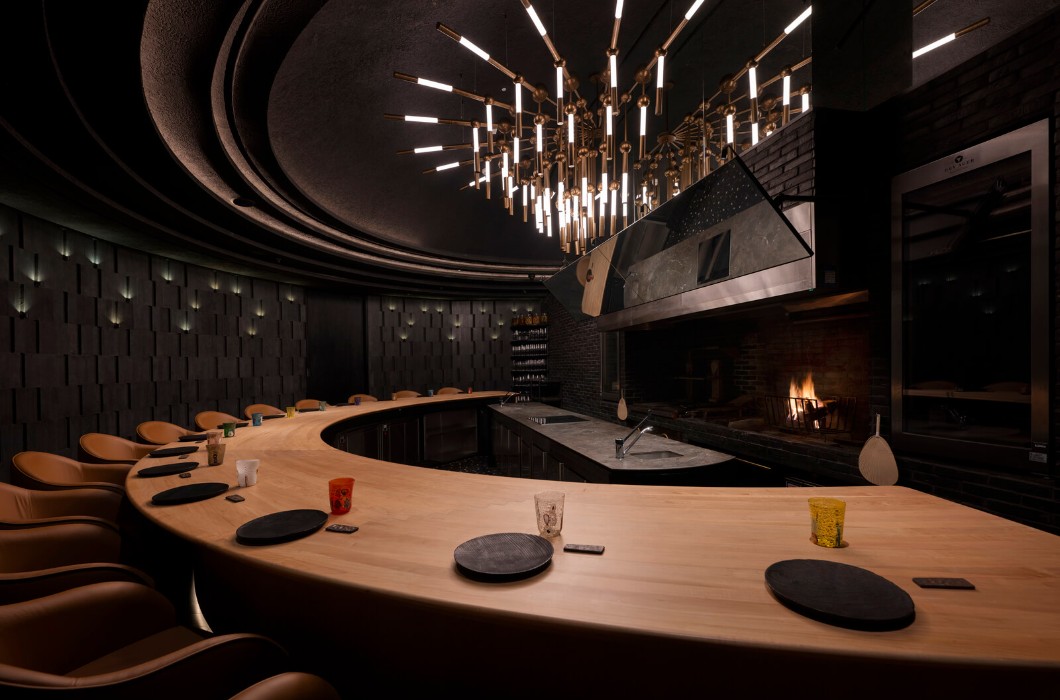
From Andalusia to Dubai, what are your thoughts on the UAE food scene?
I have been lucky enough to visit Dubai since many years ago, so I have seen the change in the culinary scene during the last years and now I am extremely happy to be part of this culinary scene. It is a completely unique city that evolves every day and at a super-fast pace. I remember the first time I visited here and the only thing to do was go to some hotels like the Park Hyatt Dubai and Zuma in DIFC and that’s it. Now, there is so much to do. It is a city you need a month at least to visit the best restaurant, and even then, it isn’t enough. Now all the chefs and brands have a flagship in the city, turning Dubai into a market with fantastic restaurants and great chefs. It is a huge city with a lot of people living here, with all types of things and whatever it is you want, you name it, it is here.
As someone who has experience of opening restaurants outside of their home country, is there a need to adjust recipes for the local palate and local ingredients in other locations?
Absolutely. Adapting recipes is part of the process when you open in new locations. We’re fortunate to have two restaurants in Doha, so we’ve already gotten a good sense of the local tastes and preferences. Even within the region, there are differences. Doha is not quite the same as Dubai, though there are similarities, but we’ve learned to be adaptable. For example, when we opened in Los Angeles, we quickly realised that the audience there is more focused on vegetarian, vegan and healthier options, so we adjusted our menu accordingly. Similarly, in the Middle East, seafood isn’t always as popular, so we make sure to adapt our dishes to better suit the local market. It’s not something new for us. Adapting is part of the challenge and we actually enjoy it. It’s exciting to create new dishes that resonate with the local audience while still maintaining the essence of our cuisine.
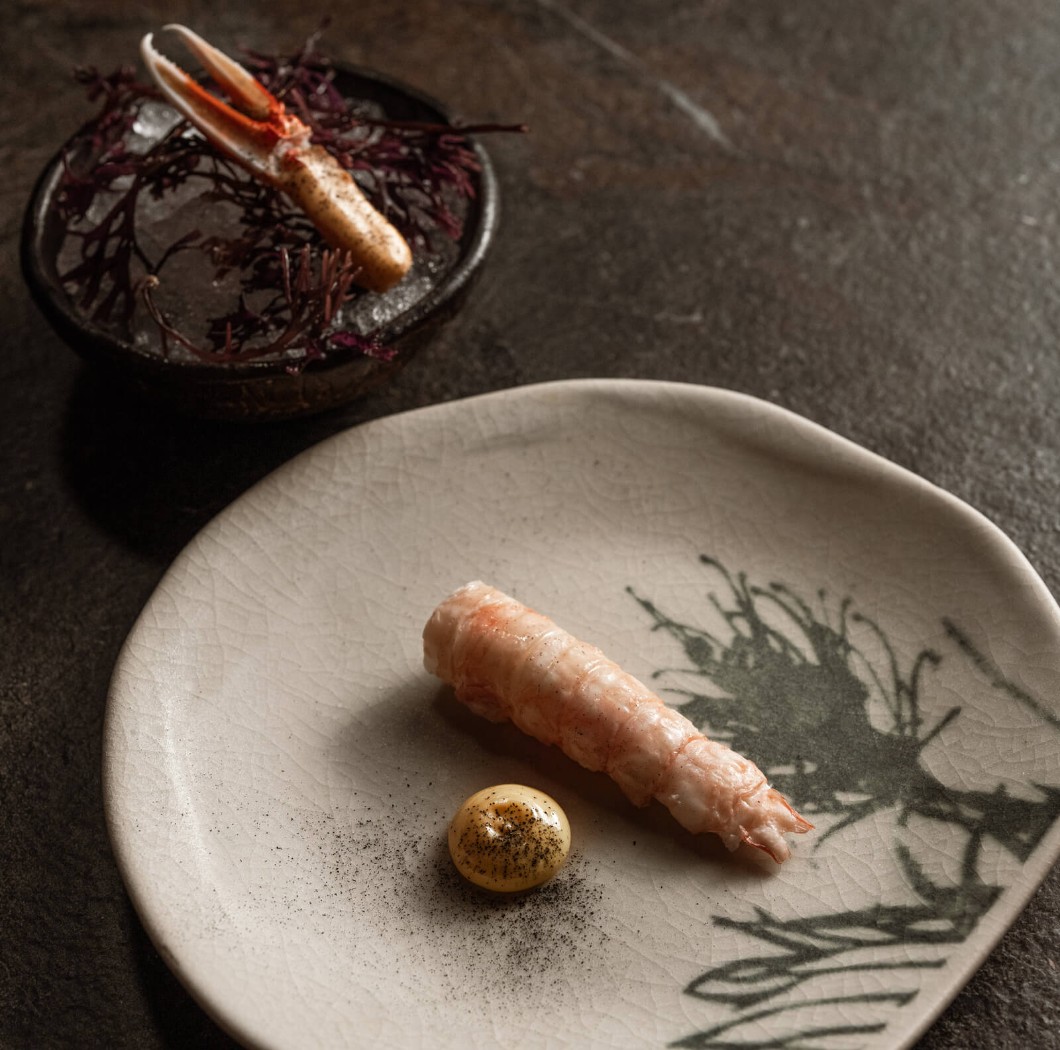
Smoked Room in Dubai introduced the unique concept of cooking with smoke and embers and has now earned a Michelin Star. What inspired the concept and how do you continue to push those culinary boundaries?
Smoked Room came about in a very organic way, not quite how people might imagine. We had just opened Leña Madrid, and there was extra space in the restaurant. I had a lot of ideas for it, including the concept of a bar and cocktail area. But then I realised something - I was missing the fine dining scene, and I wanted to create something more intimate, like an omakase-style experience. Since Smoked Room is inside Leña, I couldn’t just create a completely new concept from scratch; it needed to have some connection to the history of the space; that’s where the idea of ashes and fire came in. It felt natural to build the concept around these elements, which not only tied into the location but also reflected the depth and intensity of fine dining. Smoked Room is much more than just a dining room; it's a private, elevated experience. The techniques we use there are far more advanced than what you'd find in Leña, and it's a more refined, less casual atmosphere. It’s a true fine dining experience, with the level of craftsmanship that goes into each dish. And of course, having earned a Michelin Star, it's a unique distinction. Not many restaurants in the world can say they have a Michelin-starred fine dining room inside another restaurant.
Having been involved in the culinary industry for nearly 30 years and earned several Michelin stars, what is the key to staying relevant?
There’s no real secret to it, and if there is, it’s hard work. When I start thinking about new projects or concepts, I’m not focused on getting a Michelin star or being more or less relevant. What matters most to me is striving for excellence and creating something that feels authentic to the space and the philosophy we want to convey. I think about the experience I want to offer, and how it aligns with the environment we’re trying to build. From there, it’s all about hard work, being surrounded by a great team, and delivering on that vision. If you focus on doing the work and paying attention to every detail, positive things follow.
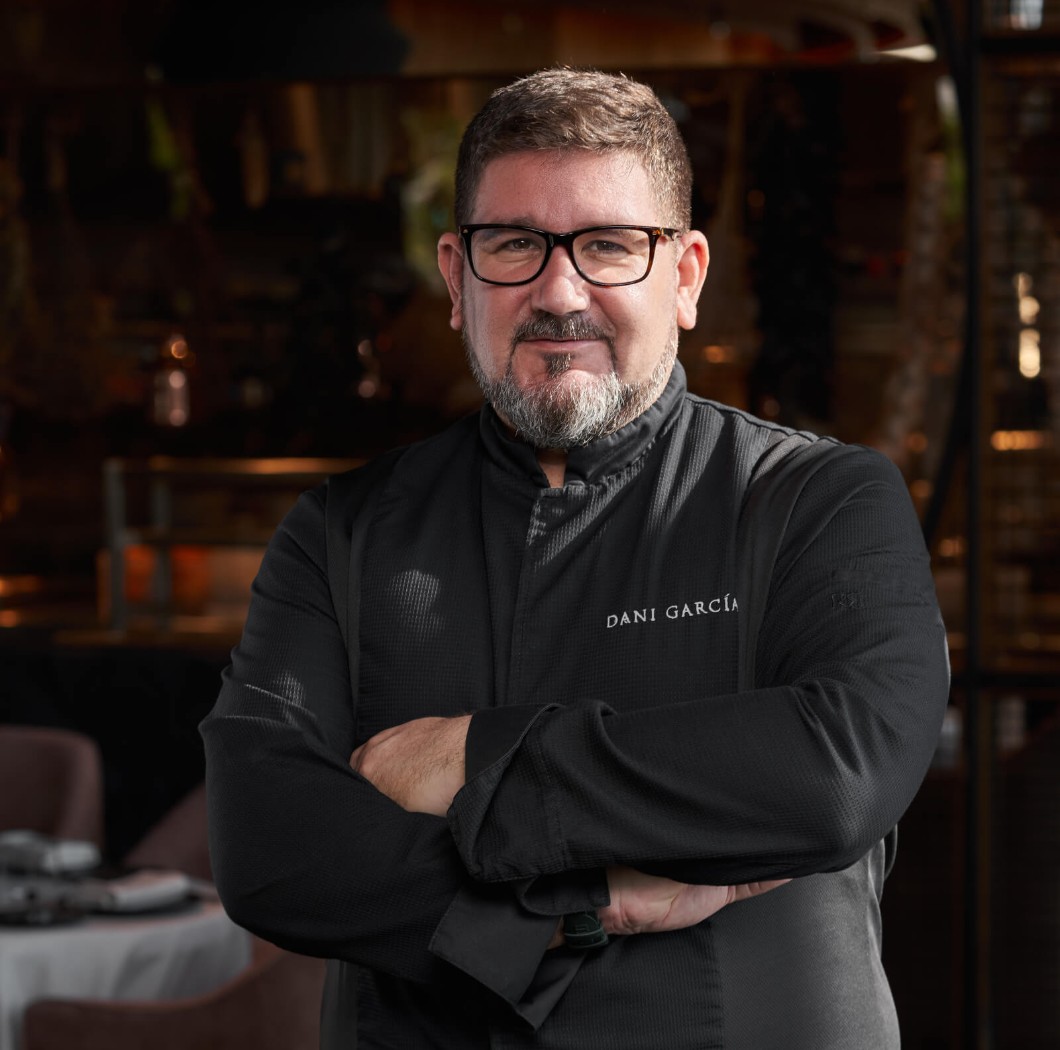
As the proud recipient of several Michelin stars currently, is it harder to earn or keep a star?
I believe the key is to focus on delivering the best possible experience for your customers, and the stars will follow naturally. That’s the hard part. You shouldn’t be cooking for the guide or for recognition - you should be cooking for the guest. Every customer who comes to your restaurant is making an effort to be there and it’s our responsibility to give them the experience they deserve. When you stay focused on that, the recognition, including Michelin stars, comes as a result of your dedication to the craft.
And finally, are there any exciting announcements or new openings you would like to tell us about?
Yes, we have some exciting new openings coming up in the next few months. First, we’re opening Leña Barcelona next month - the third Leña in Spain. Barcelona is a challenging city to open in, but we feel ready to deliver something special there, and we already know the city well, so we’re confident we can create a great experience. After that, we’re opening Casa Dani in Los Angeles, which will be our first time on the West Coast. It’s incredibly exciting to bring our concept to LA. And then, we’ll be opening Leña Miami after that. But we’re not stopping there. Stay tuned for Ibiza and we’ve got a lot more in the pipeline. There’s a lot to look forward to!
THE GRILLING
What was the first dish you really "mastered" cooking?
The first dish I really mastered was ajo blanco with red wine and vanilla granita. It’s a traditional Andalusian dish, but I put my own twist on it. It was one of those dishes that felt like a turning point for me, where I understood not just the technique, but how to balance flavors in a way that felt truly unique.
What motto do you live by or cook by?
The most important thing is always the everyday guest. If you can make them happy, the awards will come. Of course, it’s great to cook with the awards and guides in mind, but you should never cook for them. You cook for the guest, and the rest follows naturally.
Best piece of advice you’ve been given throughout your career?
Surround yourself with good, normal people, with a great heart, no egos. It’s all about humility and kindness. That’s the foundation for any team, and for creating something truly special.
Favourite dish to cook?
Oxtail stew.
Three ingredients you could never cook without?
Olive oil, tomato and salt .
Bar your own, favourite restaurant in the world?
Casa Jondal.
Favourite country to travel to for food?
Japan.
Greatest food indulgence?
Nutella.
Strangest thing you’ve eaten?
Whale Sperm.
Most memorable meal?
The most memorable meal for me is always Christmas Day, surrounded by family. It’s not just about the food -although it’s always incredible - it’s about being together with the people you love. There’s something special about sharing that time and meal with your loved ones.
Who has inspired you most throughout your career and why?
There have been several people who’ve deeply inspired me: Martin Berasategui for his commitment to excellence and creativity; Ferran Adrià for his innovative thinking and pushing the boundaries of modern cuisine; Joël Robuchon for his discipline and focus on precision; and Nobu Matsuhisa for his incredible approach to blending flavors from different cultures. Each one of them inspired me in a different way, but all of them changed my perspective on food and cooking.
Favourite cooking TV show and why? Or favourite chef autobiography?
The last one I watched was Chef's Table, and specifically, the episode with Evan Funke. After watching it, I just wanted to run into the kitchen and cook fresh pasta for the rest of my life! It’s an incredible story - so beautiful, so inspiring. If you’re looking for a cooking show to watch, I highly recommend it.
If you had a last meal, what would it be?
Gambas pil pil, clams, gazpacho, and eels







